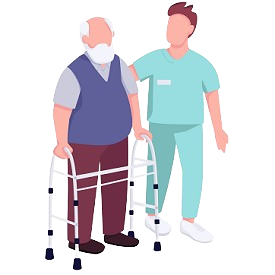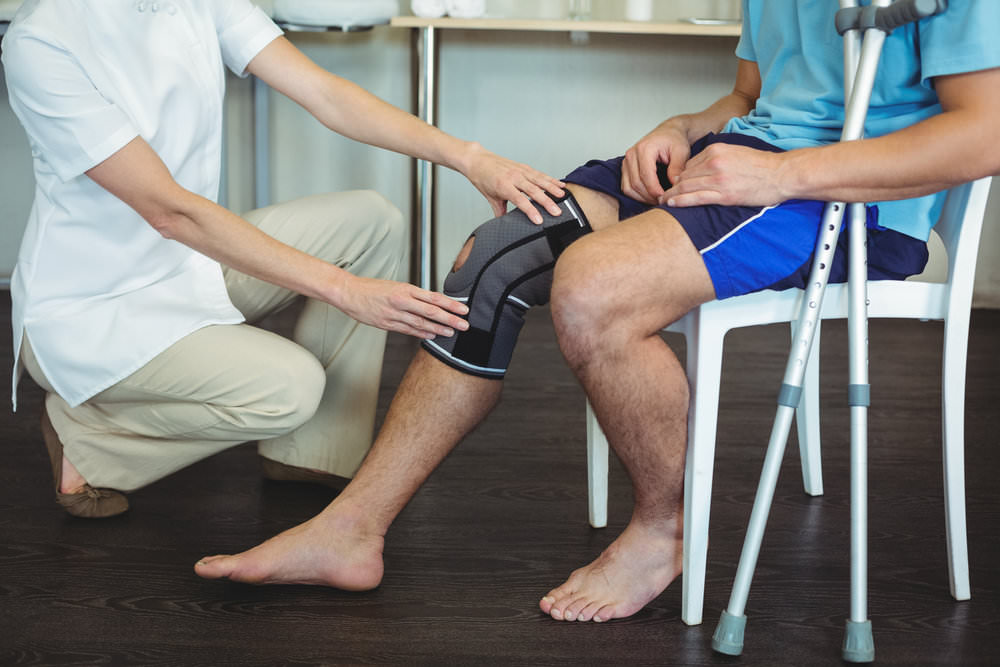Physiotherapy Chemotherapy

Role Of Physiotherapy In Cancer Recovery
If you or someone you know has been diagnosed with cancer, you are no doubt aware of the numerous treatment options available. There are numerous treatment options available, ranging from medication and dietary changes to chemotherapy and surgery. While it may not be the first thing that comes to mind when discussing cancer, physiotherapy can help people maintain a high quality of life and stay healthy.
There are numerous approaches a person can take in response to a cancer diagnosis, but all of them will leave the person exhausted and more vulnerable to other medical complications. Physiotherapy helps people maintain their physical abilities, which keeps them strong and healthy.


How Physiotherapy Can Help In Cancer Recovery
Cancer treatment frequently results in neuropathy. It is caused by changes in nerve conduction and manifests as tingling, numbness, and pain. Speak with your Physiotherapist about how treatment for neuropathy can help.
Cardiovascular Performance can be significantly impacted during and after cancer treatment. Your rehabilitation clinic’s experienced physiotherapists and other health professionals can help you regain endurance and monitor your cardiovascular status. Physiotherapists are trained to recognise the signs of fatigue and stress and will educate you on how to recognise these signs as well as develop safe and achievable cardiovascular fitness goals.
Importance of Maintaining Healthy Lifestyle In Cancer Recovery
… A balanced and healthy diet is always important, but it is especially important when your body is under stress. Your recovering body requires an abundance of fruits and vegetables, as well as omega-3 fatty acids, clean proteins, and good carbohydrates.
… Keep a healthy weight. As a result of the illness or treatment, you may have lost or gained weight. It is critical that you return to your normal weight as soon as possible. A consultation with a dietician may be exactly what you need to get back on track.
… Both alcohol and tobacco are known to increase the risk of disease.
… Consume plenty of water! Hydration is essential at all stages of life. Water is necessary for muscle health. Ask your physiotherapist how much water you should drink after each physiotherapy session.
… The importance of exercise cannot be overstated. A physiotherapist will design an exercise programme that will get you moving in the safest, gentlest way possible while also assisting you in reaching your recovery goals.


Genitourinary Complications
Incontinence and Sexual Dysfunction are common among men undergoing prostate cancer treatment and women undergoing bladder or ovarian cancer treatment. A skilled Physiotherapist can assist in rebuilding pelvic floor strength in order to improve urinary continence and reduce pain associated with sexual function.
FAQ
What is post-chemotherapy physiotherapy?
Post-chemotherapy physiotherapy is a specialized rehabilitation program designed to help cancer survivors regain strength, improve physical function, and enhance their overall quality of life after undergoing chemotherapy.
Why is physiotherapy important after chemotherapy?
Chemotherapy can cause various side effects, such as fatigue, muscle weakness, joint pain, and neuropathy. Physiotherapy helps in managing these side effects, restoring mobility, and improving endurance and strength, which are crucial for a patient’s recovery.
Who can benefit from post-chemotherapy physiotherapy?
Any cancer survivor who has completed chemotherapy can benefit from this program. It is especially beneficial for those experiencing lingering side effects that affect their daily activities and overall well-being.
What types of exercises are included in the program?
The program includes a combination of:
- Strength training: To rebuild muscle mass and strength.
- Aerobic exercises: To improve cardiovascular health and stamina.
- Flexibility exercises: To enhance joint mobility and reduce stiffness.
- Balance and coordination exercises: To prevent falls and improve overall stability.
How long does the physiotherapy program last?
The duration of the program varies depending on individual needs and recovery goals. Typically, a program may last from a few weeks to several months, with sessions ranging from 30 to 60 minutes.
Are the exercises painful?
The exercises are designed to be gentle and gradually increase in intensity. Patients might experience some discomfort, especially if they have been inactive, but the physiotherapists will ensure that the exercises are within a tolerable range and adjust them as needed.
How soon after chemotherapy can I start physiotherapy?
It is advisable to consult with your oncologist and physiotherapist to determine the appropriate time to start physiotherapy. Generally, you can begin as soon as you are medically cleared and feel ready to engage in physical activities.
What are the qualifications of the physiotherapists?
Our physiotherapists are licensed and trained professionals with specialized knowledge in oncology rehabilitation. They have extensive experience in working with cancer survivors and are committed to providing personalized care.
Can physiotherapy help with chemotherapy-induced peripheral neuropathy?
Yes, physiotherapy can help manage symptoms of chemotherapy-induced peripheral neuropathy, such as numbness, tingling, and pain in the hands and feet. Specific exercises and techniques are used to improve nerve function and reduce discomfort.
How do I get started with post-chemotherapy physiotherapy?
To get started, you can schedule an initial consultation with one of our physiotherapists. During this consultation, a thorough assessment will be conducted, and a personalized rehabilitation plan will be created based on your specific needs and goals.

